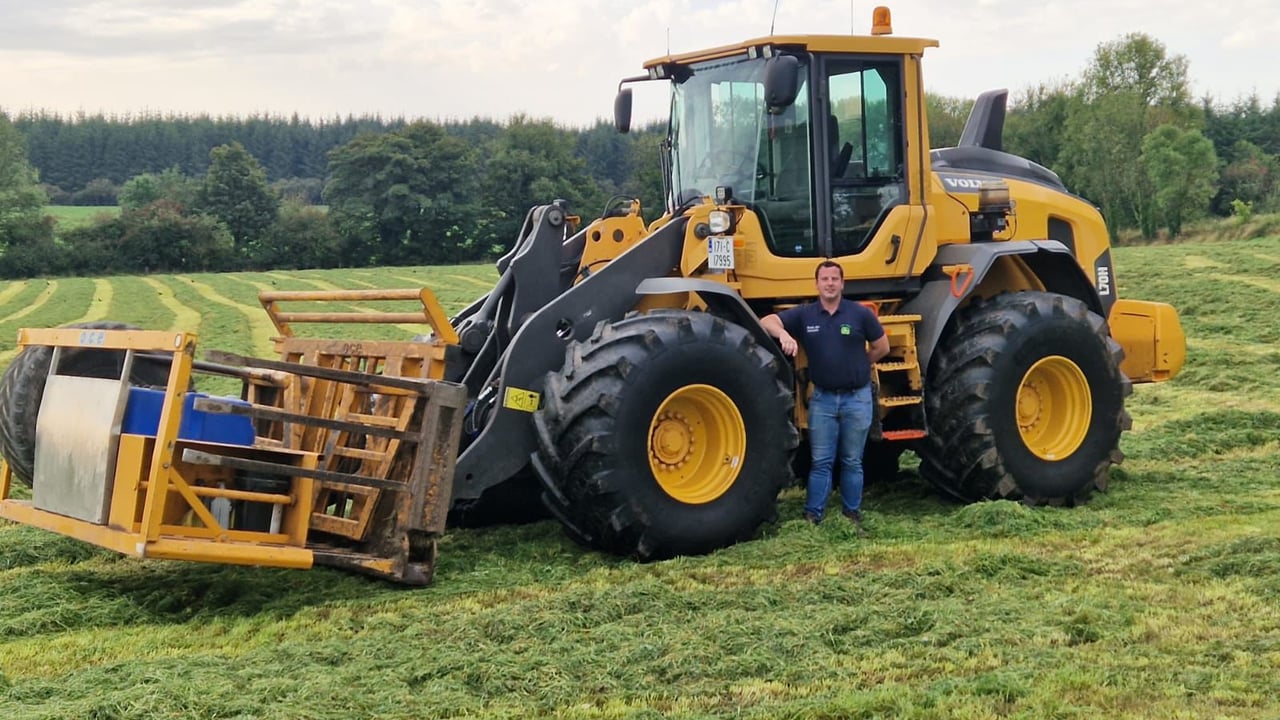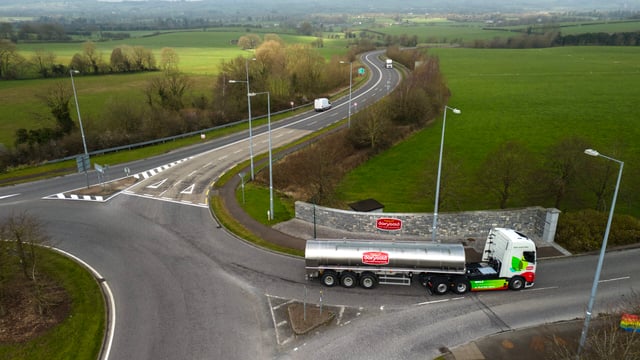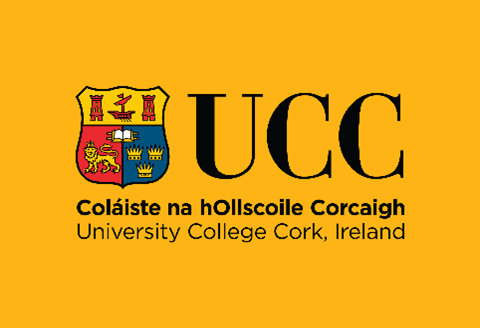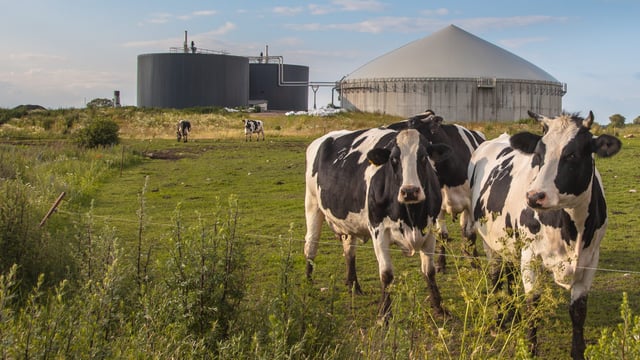Macra 2025 elections: 'You can't lead if no one's willing to follow you' - Murphy
Two candidates are currently in the running to be the next president of Macra - Conor Murphy from Co. Cork and Josephine O’Neill from Co. Kilkenny.
Ballot papers have been issued to Macra clubs throughout Ireland with the final count due to take place in the Irish Farm Centre on April 4.
Agriland has been speaking to both candidates about why they are in the race to be the next president of the organisation which has 170 clubs throughoutl Ireland.
Both candidates were given the opportunity to answer the exact same questions and set out their pitch to voters.
Here is what Conor Murphy, who has been a member of the Whitechurch Macra club in Co. Cork for 10 years, had to say.
"I want to give back and serve Macra. After ten years of being in the club, I feel that I've learned what's needed for the organisation to grow and develop, to bring in new members and to hold on to what we already have.
"I want to run effective campaigns for our rural youth, across healthcare, transport, cost of living and agriculture. I want to look after our young farmers and to see Macra continue to put its best foot forward in ensuring they are supported as best we can.
"I believe that by being president - and I believe I'd be the best candidate for president - that I can succeed in doing so."
"I've developed my skills in Macra over the last ten or 11 years, but I've also worked in other various organizations and committees, so I'm bringing skills from a lot of different sectors, not just what I've learned in Macra.
"I would be quite organised - if there's something that needs to be done, I will go away and do it and I would get it done as quickly, as efficiently and as effectively as possible. From working as a contractor, I have developed great relationships and great personal skills.
"You can't lead if no one's willing to follow you and the best way to do that is by generating consensus, making sure that everyone feels listened to and that their point is taken on board. I possess that ability to bring people along with me," Murphy said.
"If everyone is behind an idea or an initiative, it is a lot easier to drive that forward because everyone feels that they've had their input, and that's something I'd be quite good at.
"That's something that I did during my time as competitions chair. I made sure that that everyone sitting around the table felt that their opinion and their idea was valued and welcomed. The more ideas we have coming to the table, the better an organization we will be," he added.
How would Macra evolve under your leadership and what is your plan for the club’s future?
"There's several different ways that I'd like to see Macra evolve. Firstly, we're going into CAP renegotiations in the next two years and that's something that Macra needs to be very strong at.
"We need to sit around the CAP strategic committee and we need to make sure that we use our voice to get the best possible outcome for young farmers, so that they feel seen and supported, and that farming continues to be a viable sector into the future.
"And I suppose in relation to clubs, I will work with the presidential team, the three vice presidents and the three provinces, as well as our training and development officers to put a plan together to ensure that they are supported.
"I'd like to meet every club and council to put a plan together to see what it is that they need, because what a club in Cork needs may be completely different to what a club up in Galway or in Mayo needs.
"Then I would come back and review those plans on a regular basis to see how they're getting on planning and staging it, to see if it needs further development and just working from there.
"Hopefully, after two years in office, we can see Macra in a stronger position on the ground than from where we're starting from."
How do you intend to increase retention and recruitment of members and what strategies will you use to attract youth who may not come from farming backgrounds?
"What I'd like to do is run a national recruitment campaign which I think would be quite effective if it was run from September, the second month of the year. We're very good at saying that new members are always welcome, but we need to go out and attack those new members as well.
"Clubs will be encouraged and supported by head office to go out into the community, set up a stand outside the local shop or the community hall or if there's other organisations in the community, to come together and set up an exposition.
"That's actually something we did as a club in Whitechurch two years ago - we brought the community together, set up several stands and we actually got a few new members from it. That's something that I'd like to see run nationwide.
"Once they're in, I will ensure they're welcomed, that they learn what Macra is all about and what they can gain from it, because it is a fantastic outlet that offers something for everyone. You can get as much or as little out of your Macra experience as you want," Murphy outlined.
"In relation to retention, the key thing there would be to provide the training and support to our members so that they feel confident in whatever their role or capacity might be.
"There's a fantastic support network in Macra and I will steer the county executive and the presidential team to ensure that no one member feels the entire burden of running a club on their own shoulders," he said.
Has Macra been successful to date in attracting members from a wide range of backgrounds?
"To be fair, it has been successful in attracting non-farming members. Macra is an inclusive organisation that's open to all backgrounds, in my own club in Whitechurch, I could honestly say it's nearly a 50, 50 split between farming and non-farming members.
"Of course we continue to develop, we can't just stand still and say we have the inclusivity box ticked, we must continue to work ensure we remain an inclusive organisation into the future as well.
"Non-farming members in particular are fantastic at proposing and lobbying for policies in relation to planning, cost of living, housing and healthcare, the issues that affect everyone, we we need to continue to make sure these members are catered for."
How do you plan to support and empower young women in agriculture through your presidency?
"Equality is the most important thing when it comes to farming and as a contractor, when I go into a farm, whether it's run by a male farmer or female farmer, I treat everyone the same.
"There is a women in agricultural working group and I suppose it's a case of making sure that it continues to stay up and running, that they continue to have their voices heard and to work alongside the group to ensure that there are grants and schemes available for female farmers.
"I will endeavour to ensure that are female members feel that their voice is just as equal to any male farmer and that they're just as welcome around the table. That goes for everyone. Anyone that comes to Macra looking for a bit of help, we try and give them that."
What do you think are the biggest challenges facing young farmers and rural communities today, and how would you address them as President of Macra?
"I mentioned there earlier that CAP renegotiations are coming up and we need to make sure that we remain a strong voice within Europe so that we hold on to as much of that budget and the cohesion fund as possible.
"At home, we see the continual rise of TB so I will try to work with the various bodies on the TB forums to see if we can come up with a plan to reduce the level of TB in the national herd. Also, stocking rates are up for debate and that's something that Macra needs to remain strong on.
"I'll try and ensure there isn't any adjustment to the nitrates rate of 220 too. We must continue to follow the science and it's great to see that the water quality has improved in recent times as well but we need to allow farmers time to work with the science.
"If elected, I will continue to lobby on behalf of our young farmers with the department of agriculture with Minister Martin Heydon to ensure that our voice is heard and that we continue to be supported going into the future as well."
Do you believe the organisation, in its current form, could apply greater pressure when lobbying on behalf of rural youth in Ireland at local, national and EU levels?
"I believe it could, yes. Macra is a fantastic organisation, with a lot of varying voices but the committee must meet with the various government departments to put forward our issues.
"We are very strong when it comes to lobbying on agriculture, but we need to continue to grow and strengthen our lobbying when it comes to other rural youth issues too, because these are the issues that affect all young people across the board.
"We need to meet our members and ask them what it is they want and feel that we could be doing as an organization, or what areas we need to be focusing on, to ensure we take our lobbying efforts to the next level."
How would you ensure the organisation remains relevant in the face of rural decline?
"That is a very important issue. You do see a decline in the amount of people living in rural Ireland, my own sister has immigrated to Canada recently and a lot of people my age are in Australia, Canada and America.
"I suppose it's just to make sure that Macra remains a relevant social outlet for people to meet each other, so that the club continues to play a part in the community despite the decline in population.
"We can continue to provide a home for those that are here, as well as one for our friends and family when they return to Ireland."





